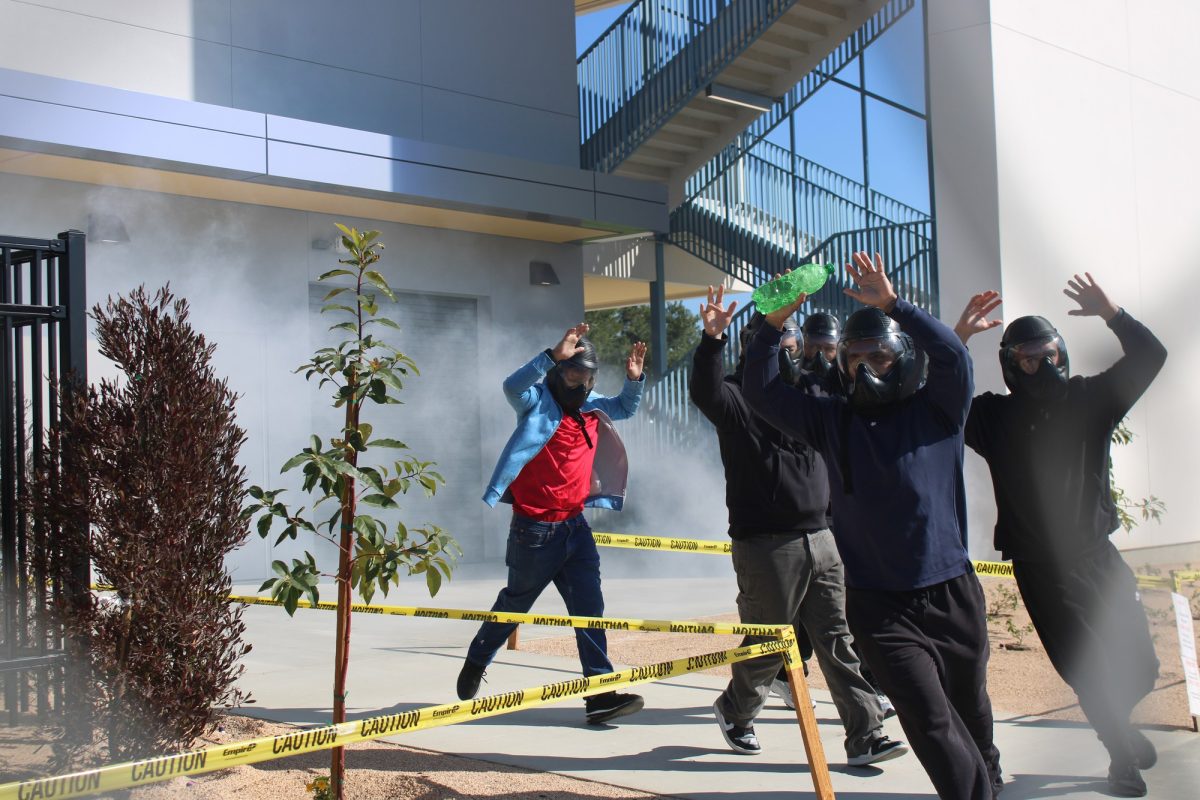The Re-Entry Program hosted an anger management workshop on Tuesday that covered different aspects of anger and how to use coping skills to manage it.
Shannon Estrada, the Re-Entry Program Coordinator, said she chose the topic Anger Management because she thought it would be a good topic that can apply to everybody.
“I think everybody has anger issues. I thought it would be a good all around topic and I really like the presenter, Pamela,” she said.
“Every semester, I look at the list of workshops she does and I just try to pick a couple of new ones. So this is just one I thought was really well-rounded and with good information that everybody can use.”
The workshop was presented by Pamela Sepulveda, a certified social worker and Community Outreach Director at Casa Youth Shelter.
“I became a presenter at Cerritos College when Shannon reached out to me because we had a history of presenting here with different presenters.
“Shannon and I have built a relationship to an agreement that twice a semester I come out and I’m part of the curriculum. There (are) different workshop presenters that come every time. I think she likes the different topics because I can offer 12 different topics.”
Sepulveda passed out an “Anger Test” that had 27 “Yes” or “No” questions to begin the workshop.
Some of the questions were:
1. Are you someone who “never gets angry?”
2. Do other people think you’re angry?
3. Do you often think that other people are a bunch of idiots?
4. Do you think about getting revenge on others?
5. Does it seem to you like other people “just don’t get it?”
“Be welcome to the concept that people have issues with anger,” Sepulveda said to the attendees after the “Anger Test” was finished.
The hour continued on covering what’s beneath anger, what happens when anger is repressed and how to listen to and release anger, among other topics.
Sepulveda recommended that students try to learn as much as they can about healthy coping skills.
“The college professional, or the student if you will, is in such an open-minded learning frame of mind because they’re learning everything in their classes that adding emotional health and healthy coping skills to that curriculum that you’re learning is part of the natural process.
“And so, when you’re already open to learning about political science or biology or you’re open to learning new things, add emotional health to that.
“College is a time of self-discovery and learning who you are and what you’re going to be, and don’t make it just about professional and academia. Make it also about emotional health and well-being,” Sepulveda said.
She said there is a difference between how the sexes express their anger and that it doesn’t mean that either is a better way to cope with anger.
“Men are much more aggressive because society allows men to be physically aggressive and very extrovert with their anger. ‘Society’ doesn’t want women to be angry and aggressive physically because it’s a very masculine trait,” Sepulveda said.
She explained that women use other ways to express anger. The way women express their anger is by using passive-aggressive ways.
“And so it’s often a look, it’s cutting, it’s gossip, it’s cutting other women down and that’s how women typically get their anger out (which) is in very passive-aggressive verbal social relationship types of ways versus aggressive ‘I’m going to punch you’ kind of ways.”
Cynthia Zamudio, a human services major, attended the workshop and said she enjoyed it and the way it was presented. She commented that the title was what caught her attention.
“I thought it would help me cope with some of my anger issues. I have six kids. So, there’s fighting. There’s anger issues at the home, so I thought it would be helpful to learn how to cope with some of those skills,” Zamudio said.
One of the most interesting things that Zamudio learned was that feeling angry stems from feeling fear or hurt.
“I think once I understood that concept, it kind of made sense. So ,I’m going to apply that,“ Zamudio said.
“I hope (what) (students) take away is that anger is OK and that it’s how we handle and express our anger which makes it the difference between healthy anger versus unhealthy anger,” Sepulveda said.
“Anger is OK. It’s how we deal with it which is what makes the difference.”










